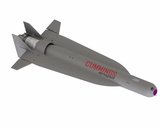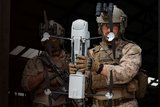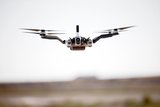French students behind the world's first solar-powered blimp
More than 30 French university students have collaborated to design the world’s first solar-powered blimp, Nephelios, unveiled at the Paris Air Show at Le Bourget last month.
This innovative and ecological aircraft, measuring 72 feet long and 18 feet in diameter, with an average speed of 25mph, is set to change the concept of air travel. One hundred years after the first flight across the English Channel by Louis Blériot, Nephelios will undertake an English Channel crossing in late August, making it the first manned solar-powered airship flight of its kind.
Sol’R is a collaborative project between engineering and business students from ESSEC Business School, the Institut National des Sciences Appliquées, the Ecole Nationale Supérieure d’Arts et Métiers and the Ecole Polytechnique Féminine, with the objective of designing and creating the first solar-powered blimp in the world. The students have been working on the project for more than a year, largely inspired by past exploits in modern aviation.
The innovative aircraft has the latest-generation, semi-flexible photovoltaic panels installed on its top side. The collected solar energy drives an electric motor situated behind the steering pod, which is equipped with two twin-bladed propellers.
In the future, airships will benefit from significant competitive advantages over other means of transport, such as their ability to move extremely heavy and bulky loads (power turbines for example). A solar airship also has the advantage of being very quiet and provides an alternative to carbon-powered air transportation. The project's technical teams hope that Nephelios becomes a benchmark in terms of self-sufficiency and maneuverability.
Arnaud Vaillant, an MBA student at ESSEC and one of three initiators of the Sol'R project said: "In the near future we would like Nephelios to be used for scientific missions and surveillance. In the longer term and after improvements, the airship will also have applications in the transport of freight, aerial observation, tourism and telecommunications.
The project is supported by ESSEC Ventures Incubator, the business school’s entrepreneurial development centre designed for ESSEC MBA students who want to create their own company or simply to learn more about the entrepreneur's experience. Students who have completed the entrepreneurship program and demonstrated strong motivation to work on creating projects are welcomed to the incubator where they receive methodological and logistical support without the need of a financial contribution.






















